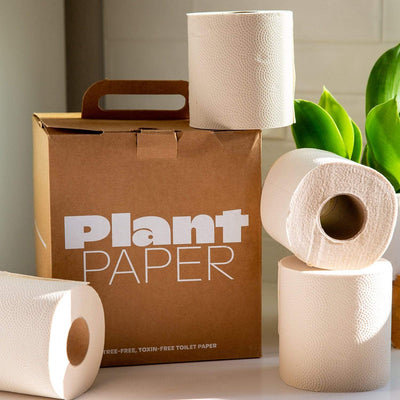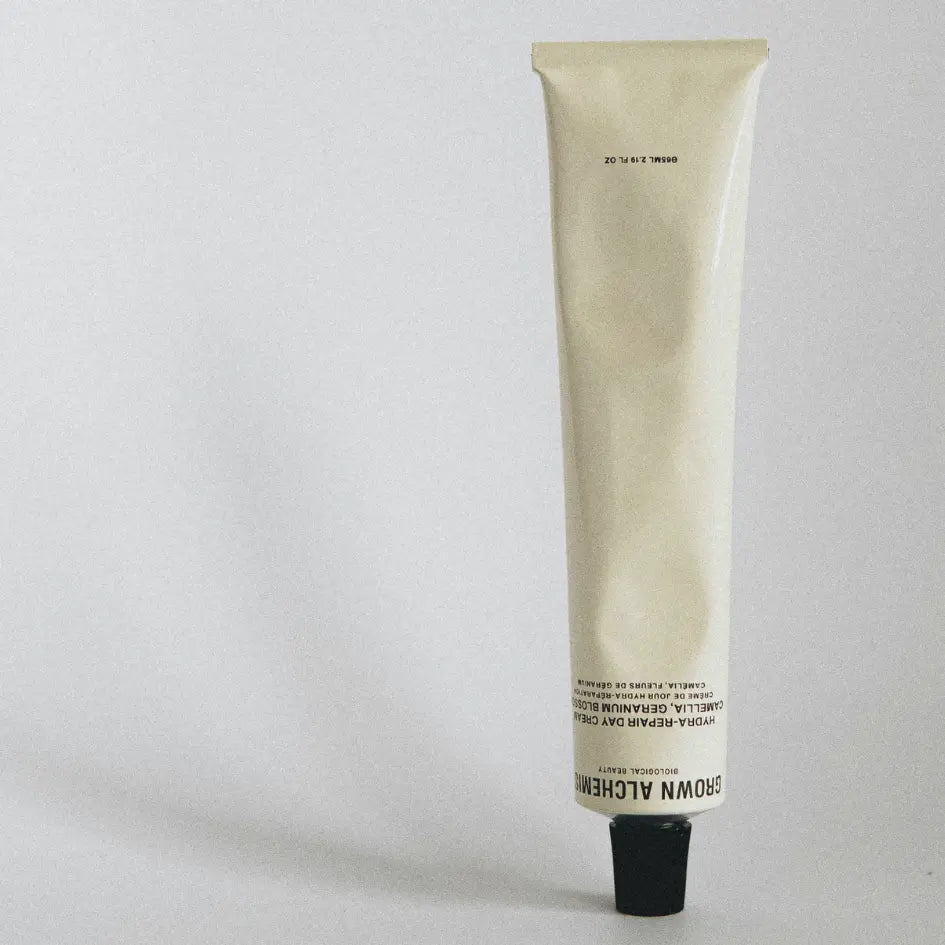PlantPaper
Our ratings are based on a scale from 1 (Avoid) to 5 (Top Choice).
See how we rate.
The Shifting Gaia rating evaluates brands based on sustainable practices, ingredients and materials, and social responsibility, among others. Below are a few factors influencing this brand's score:
overview
about
PlantPaper produces bamboo-based toilet paper and tissue products. Highlights
• Bamboo fiber
• Plastic-free
• FSC Certified
• PFAS-free
• Vegan
sustainability
details:
Packaging
Every roll is delivered in lightweight, 100% recycled chipboard cartons with no plastic at all (the entire supply chain from factory to doorstep is completely plastic-free). These cardboard boxes are also fully recyclable and compostable, with no added dyes or coatings. PlantPaper even designed its 8-roll packs with clever folded closures (no glue or plastic tape) to be tamper-proof yet plastic-free.
Material Sustainability
PlantPaper's products are made from sustainably sourced plant fibers, with an emphasis on fast-renewable bamboo. The brand's flagship toilet paper is a 3-ply tissue made from 100% FSC-certified bamboo pulp. There are no additional materials, meaning PlantPaper has eliminated common additives like dyes, inks, or lotions and even avoids unnecessary adhesives in the rolls. The result is a pure bamboo fiber product. The newer facial tissues follow the same formula: unbleached 3-ply bamboo tissue with no added chemicals or fragrances.
Energy Use and Footprint
PlantPaper's carbon footprint benefits from its thoughtful material choices, but lacks comprehensive reporting. PlantPaper points out that because bamboo regenerates quickly and requires less intensive processing, the cradle-to-grave emissions of their tree-free TP (even with ocean shipping) are about one-third the carbon emissions of typical tree-pulp toilet paper.
Still, there is no indication that the Chinese pulp mills or paper factories are powered by renewable energy, and the company has not announced any carbon-neutral operations or offset programs.
Waste Management
PlantPaper's approach to waste is largely preventative. The brand avoids creating waste and pollution at every stage of the product lifecycle. In manufacturing, the bamboo pulping process uses about 30% less water than wood-pulp paper. PlantPaper also eschews adding formaldehyde or other resins to strengthen the paper.
In terms of supply chain waste, PlantPaper made extraordinary efforts to eliminate plastic waste. Once the product reaches the consumer, post-consumer waste is minimal and benign.
Business Model
PlantPaper's business model is grounded in sustainability and conscious consumption rather than rapid expansion or disposable hype. The brand launched around 2019 (after a few years of R&D) with a single product. This restrained launch frequency indicates a focus on quality and impact over endless novelty. Subscriptions and thoughtful sizing are central to the model. PlantPaper even offers a quiz to calibrate the subscription to household size and usage patterns, an approach that inherently discourages overconsumption.
non-toxic
details:
Traditional toilet paper and tissue often contain a cocktail of chemicals (bleaches, formaldehyde-based binders, fragrances, inks, even perfluorinated “wet-strength” treatments) that can irritate skin or worse. PlantPaper eliminates all of these. The bamboo paper is unbleached. By being Totally Chlorine Free, PlantPaper ensures there are zero dioxins or chlorine residues in the final product. The company also explicitly formulates without formaldehyde, which is commonly added to paper products for strength and is a known carcinogen and irritant. Furthermore, the product is free of any fragrances, dyes, or inks.
A critical area of concern recently has been PFAS (per- and polyfluoroalkyl substances) in paper goods. In some brands of toilet paper, PFAS “forever chemicals” have been detected. PlantPaper had their paper tab-tested for a comprehensive list of 28 PFAS compounds, and the results detected 0.
social responsibility
details:
The supply chain for the bamboo fiber is centered in China, as PlantPaper openly acknowledges. All bamboo pulp for paper production comes from China where bamboo agriculture and pulping infrastructure are well established. The bamboo is FSC-certified, and the Forest Stewardship Council standards include not only environmental criteria but also social criteria such as respecting the rights of indigenous people and workers on forestry plantations. However, beyond the growing of the bamboo, there is little publicly available information on the labor conditions in the manufacturing stage.
The entire product line is 100% plant-based (made from bamboo) with no animal-derived ingredients. This means the toilet paper is vegan by composition.
PlantPaper engages with the community and broader world primarily through advocacy, education, and collaboration, though it does not have a formal charitable giving program that we could identify.


